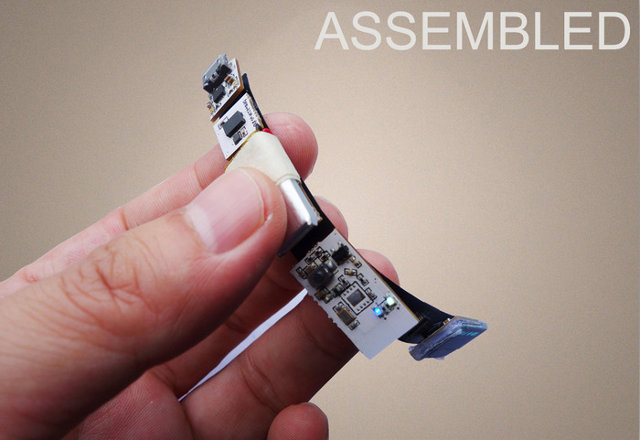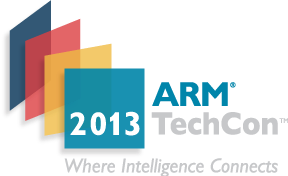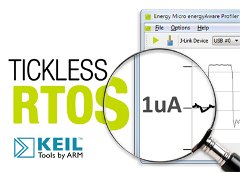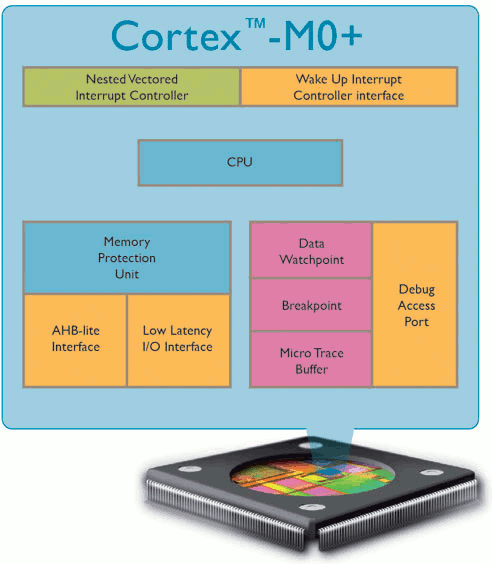[Update: Atomwear has been renamed to Vigekwear due to (Intel’s) copyrights infringement]. Giayee is a company mainly manufacturing Android tablets, thin clients, and mini PCs, but their latest product, called Atomwear, is a Bluetooth Low Energy (BLE) development kit based on Nordic nRF51822 chipset that comes with various modules such as battery charger, accelerometer, gyroscope, OLED display, heart rate monitor, etc… which connect together via 24-pin connector on a standard rigid baseboard or a flexible printed circuit (FPC). All modules are connected via the same 24-pin connector with power, I2C, SPI, UART, ADC, and GPIOs signals. The baseboard and FPC both contain 6 such connectors connected in parallel for up to 6 modules, and two baseboard can be connected together via a bridge circuit to accept more modules. The minimum configuration is with a BLE MCU module, and a power module. The different boards and modules are listed as follows: […]
ARM TechCon 2013 Schedule – ARM Servers, Internet of Things, Multicore, Hardware and Software Optimization and More
ARM Technology Conference (TechCon) 2013 will take place on October 29 – 31, 2013, in Santa Clara, and the detailed schedule for the event has just been made available. In the previous years, the conference was divided into Chip Designs day (1 day), and the other 2 days were reserved for Software & System Design, but this year it does not appear to be the case. Whether you’ll be able to attend the event or not, it’s worth having a look at what will be discussed there in order to have a better understanding of what will be the key ARM developments in the near future in terms of hardware and software. There will be around 90 sessions categorized into 15 tracks: Accelerating Hardware Development – This track explores the resources, tools, and techniques that designers can employ to quickly bring hardware to market. Topics include multicore design, ARM IP, […]
Keil RTX RTOS is Now Available for Energy Micro EFM32 MCUs
Energy Micro has recently announced the availability of the Keil RTX real-time operating system (RTOS) as part of its Simplicity Studio tool suite. The Keil RTX has been optimized for ARM Cortex-M processors to provide flexible scheduling and high-speed operation, and has been improved to enable an ultra-low power, deep-sleep mode between tasks. Energy Micro has implemented a tickless mode in Keil RTX. This mode allows the EFM32 Cortex M3 MCUs to wake up only when needed, either at a scheduled time or on an interrupt event. This results in much lower power consumption in sleep mode compared to other SysTick implementations. The video below shows the difference between SYSTICK mode where the system consumes about 2.7mA in active mode, and 830 uA in sleep mode to the new tickless mode where the MCU still consume the same amount of energy in Active mode, but only 1uA in sleep mode, […]
Green Hills MULTI 6.0 Compiler Improves ARM MCU Performance by up to 40%
Last week at Design West 2012, Green Hills Software announced it had achieved the highest compiler performance scores ever certified by EEMBC CoreMark and that it outperformed the nearest competing compilers by 35.5% using its MULTI 6.0 – Compiler 2012. Benchmarks were completed on 3 ARM Cortex-M4 microcontrollers: Freescale Kinetis K60 MCU @ 100 Mhz – 35.5% improvement over nearest competitor. Freescale Kinetis K70 MCU @ 120 Mhz – 29.6% improvement over nearest competitor. STMicroelectronics STM32F417IGt6 @ 168 MHz – 34.7% improvement over nearest competitor. Since apparently it’s bad marketing to name competitors in press releases, I went directly to the source (EEMBC Coremark benchmark results) to check out the results and competitors (IAR and Keil) for Kinetis K60 MCU. The first thing you may notice is that there are 2 tests per compiler / MCU combination. That’s because there 2 test configurations: Code in internal Flash – Data in internal […]
ARM Announces ARM Cortex-M0+ Core to Power the Internet of Things
ARM has just unveiled the ARM Cortex-M0+ 32-bit processor optimized to deliver ultra low-power and low-cost MCUs to power the ‘Internet of Things‘ by controlling connected intelligent sensors and smart control systems in a broad range of applications including home appliances, white goods, medical monitoring, metering, lighting and power and motor control devices. ARM claims the Cortex-M0+ consumes just 9µA/MHz on a low-cost 90nm LP process, around one third of the energy of any 8- or 16-bit processor available today, while delivering significantly higher performance (1.77 CoreMark/MHz). Beside the low power consumption, the main advantage of the Cortex-Mo+ over 8-bit and 16-bit MCUs , is that it can provide low power wireless connectivity to a variety of embedded systems such as wireless sensors. The new processor is based on Cortex-M0 processor but has been redesigned to include a few new features such as: Single-cycle IO to speed access to GPIO […]







